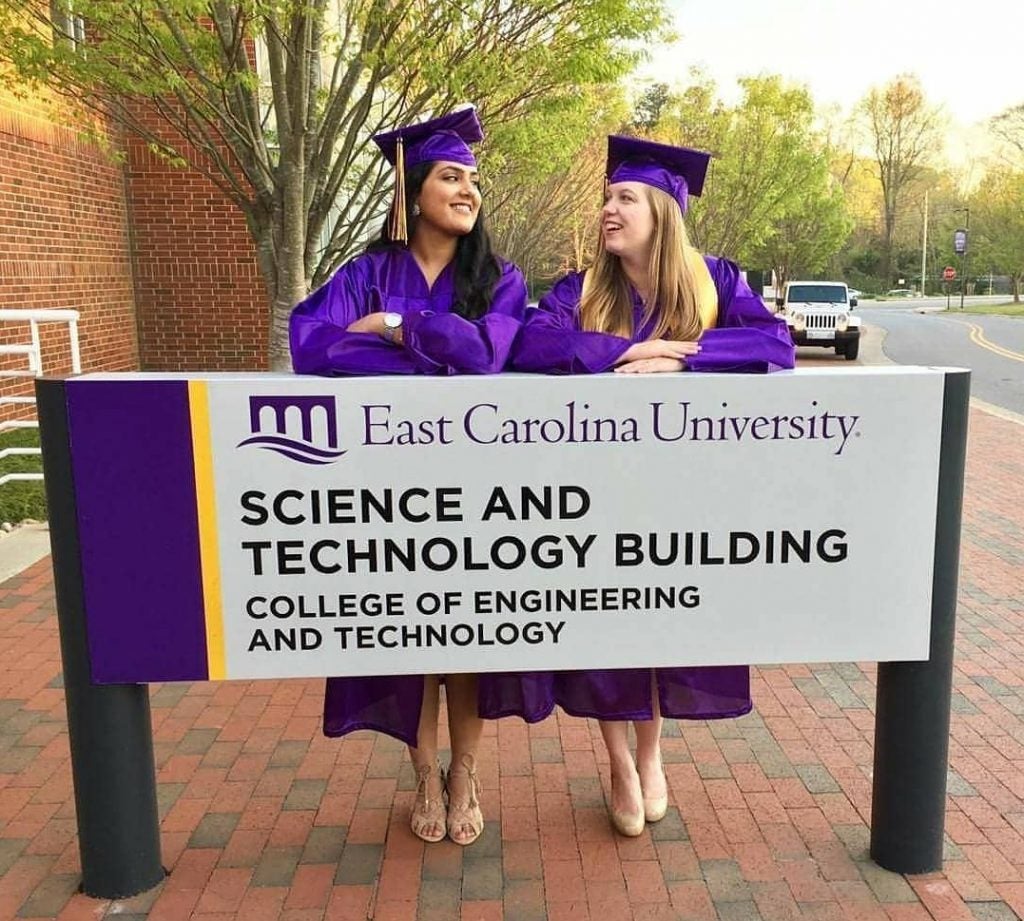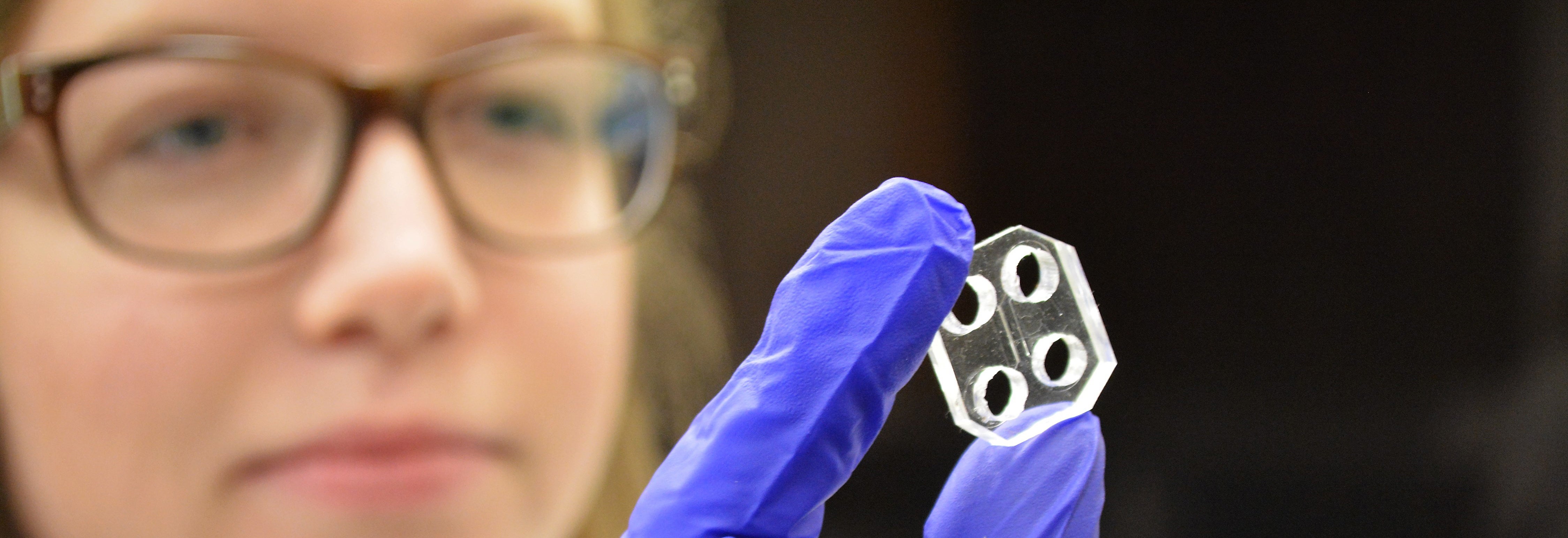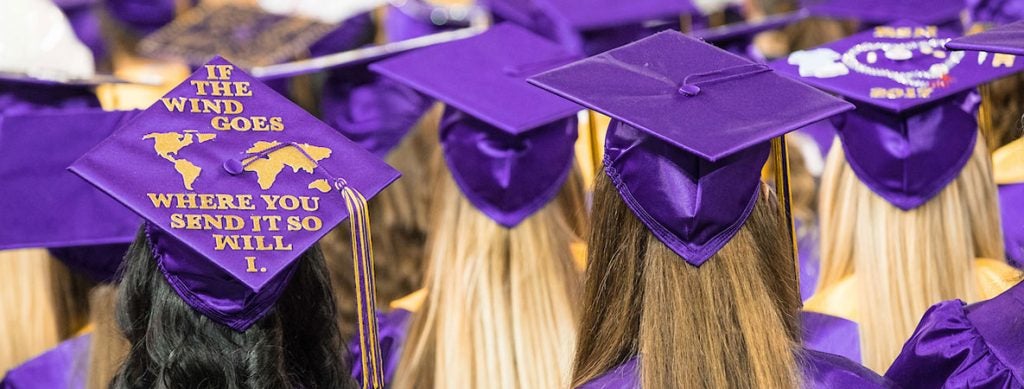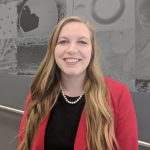EARLY ADOPTER
Biomedical engineering called to Kinsley Tate
Kinsley Tate, one of the first engineering undergraduate students to complete East Carolina University’s integrated bachelor of science/master of science program in biomedical engineering, will join more than 2,200 students who will turn their tassels in Minges Coliseum on Dec. 14.
A native of Wilmington, Tate got her first exposure to ECU and its engineering program through Summer Ventures in Science and Mathematics during the summer before her senior year of high school. The experience, during which she worked with the Department of Engineering’s Dr. Ed Howard, convinced her to enroll at ECU.

Tate, right, poses with friend Gurnoor Sangha. (Contributed photo)
“From the very start of my freshman year, I knew that I wanted to study biomedical engineering,” Tate said. “I was drawn to it not only because I liked STEM (science, technology, engineering and math) subjects, but also because I wanted to work in a field in which I could help others.”
During her junior year, she learned of the integrated biomedical engineering program and knew it would be a perfect fit. She completed the program last summer after working on an interdisciplinary project focused on autism and the role of antidepressants in altered brain development with Dr. Karen Litwa in the Department of Anatomy and Cell Biology at ECU’s Brody School of Medicine.
“I am forever grateful for the experience I had at ECU, for all that I learned and the people who helped me along the way, especially the faculty of the engineering department and the Litwa lab,” she said.
Tate is now enrolled in the biomedical engineering doctoral program at Virginia Tech and hopes to eventually teach college courses, sharing her knowledge with a new generation of researchers.


